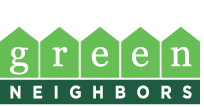Green Blog
Are the Hazardous Materials in Your Home Safely Stored?
Safe Storage of Household Hazardous Waste
There are several places in the county to safely dispose of household hazardous materials such as the county transfer stations, but with Governor Inslee's "Stay Home, Stay Healthy" order to travel for essential activities only, it is important to know how to safely store your materials at home in the short-term.
Medications
According to the Locks Save Lives campaign, easy access is the #1 reason youths misuse prescription drugs. More than half of young adults who misuse prescription opioids get them from a friend or family member. To avoid these tragedies:
- Lock up any medicine you keep at home. There are many types of lockable boxes, bags and other containers available specifically for locking up medications, or you could install a lock on a shelf or cabinet.
- Educate your family. Discuss with your children - youth and teens - about the dangers of drug abuse.
- Dispose of medication properly when they are no longer needed. Follow proper protocol for disposing of controlled and non-controlled drugs.
Household Hazardous Products
Most households have cleaners or other products that can be identified as a household hazardous product. Best practices for these items include keeping only the minimum amount of these types of items necessary, and using them up quickly.
A poison exposure is reported to a U.S. Poison Control Center about once every 15 seconds.
- Poison Control National Data, 2018
When you do need to store these chemicals, keep the following in mind:
- Ensure that the hazardous product's container is fully sealed and easily identifiable
- Never store a hazardous chemical in a container used to store food or drink
- Do not store hazardous chemicals outdoors where they are exposed to the elements
- Store hazardous chemicals out of the reach of children; get down on your knees in every room in your home and consider what might be accessible by a child
- Ensure that hazardous chemicals are secure in the event of an earthquake
- Check labels for storage information and follow specific instructions, such as storing flammable chemicals away from heat sources
- Routinely check storage areas to make sure containers are not damaged or leaking
Proper Disposal
Hazardous products should be taken to special collection facilities for disposal. They should never be thrown in the trash because they can pose threats to public health and the environment. These threats vary according to specific properties of the product. Empty containers that have been completely used up can go in the trash. Do not recycle these items such as empty motor oil containers. Take any remaining household hazardous waste you will no longer use, and follow these proper disposal tips.


